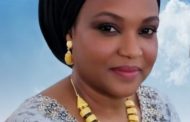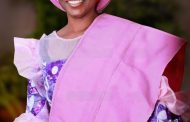It used to be said that the gender revolution will be more difficult to accomplish than a Socialist revolution. Is that still so or not and what might make it otherwise, either way? Would that be the humanisation of males?
Come Friday, May 25th, 2018, questions of such nature would be brought to the front burner of public discourse as activists in Nigeria mark the anniversaries of two leading Nigerian and one South African personifications of the struggle for popular democracy and women liberation.

The late Winnie Mandela with the equally late sage, Nelson Mandela
 The three are Winnie Mandela who sent to African women in particular the message of the ultimate overcomer of gender, political and marital adversities through acts of spectacular heroism; Dr Tajudeen Abdulraheem, the master of radical pragmatism who penetrated even the most impregnable fortresses such as Oxford University and the United Nations, making them to work for the people through him and Professor Abubakar Momoh, the “aggressive” but deeply humanistic Africanist with the sharpest eye for excellence rather than cut corners. None of them was an idealist but products of very transformative self-understanding.
The three are Winnie Mandela who sent to African women in particular the message of the ultimate overcomer of gender, political and marital adversities through acts of spectacular heroism; Dr Tajudeen Abdulraheem, the master of radical pragmatism who penetrated even the most impregnable fortresses such as Oxford University and the United Nations, making them to work for the people through him and Professor Abubakar Momoh, the “aggressive” but deeply humanistic Africanist with the sharpest eye for excellence rather than cut corners. None of them was an idealist but products of very transformative self-understanding.


The late Tajudeen Abdulraheem
Friday, therefore, promises to be a contested session on gender within the context of how the intellectual and political space that produced these high minded activists is today easily described as a case of the Left which has been left behind as a force in Nigerian politics. Why such a claim is made are not too clear. While some people attribute it to discursive rigidity, others point at the devastating as well as disorienting impacts of neoliberal ascendancy while a third group insist on the crisis of praxis in the era of capitalism which combines globalising, centralising and integrating features with localising, decentralising and disintegrating features too. All these could manifest in very confusing forms for even some of the most established Left groups across the world
Professor Horace Campbell of the University of Syracuse in the United States but currently at the Institute of African Studies at the University of Ghana will be the main speaker at the occasion which will be attended by students, the media and other stakeholders in the politics of ideas.




























